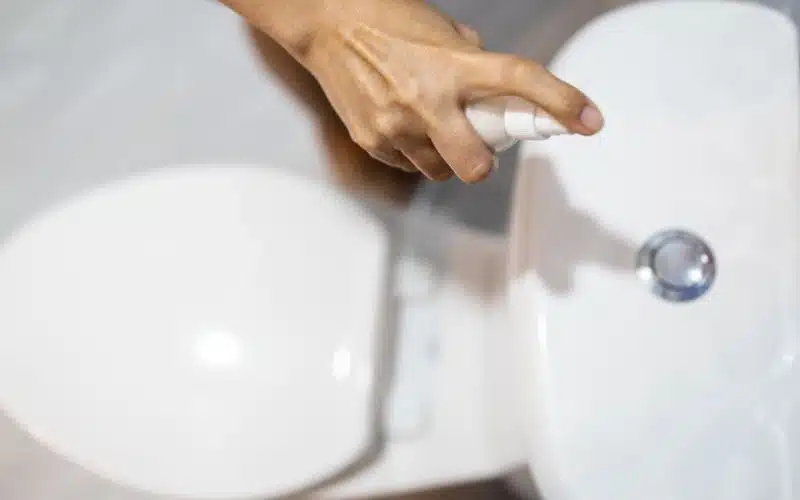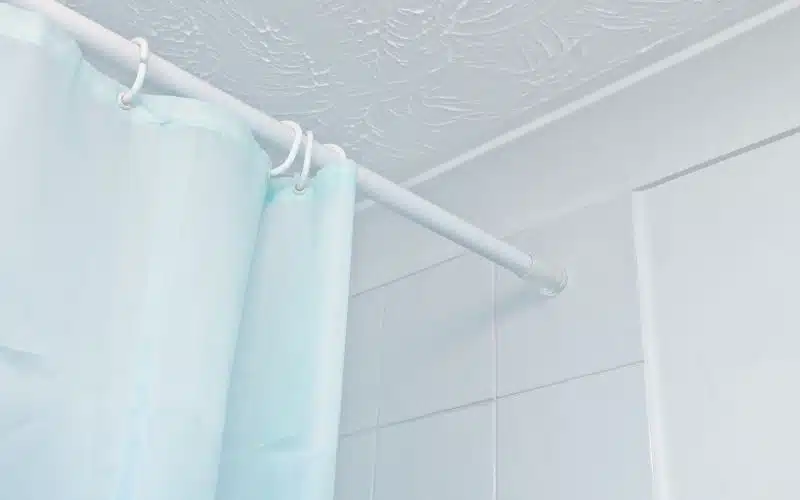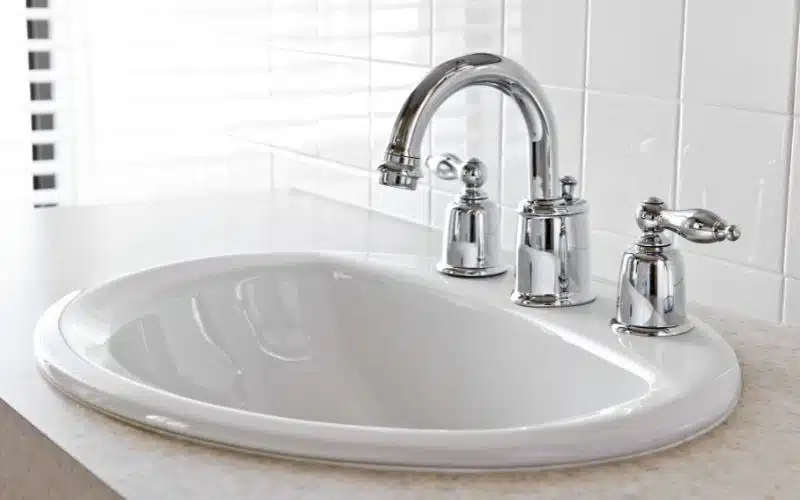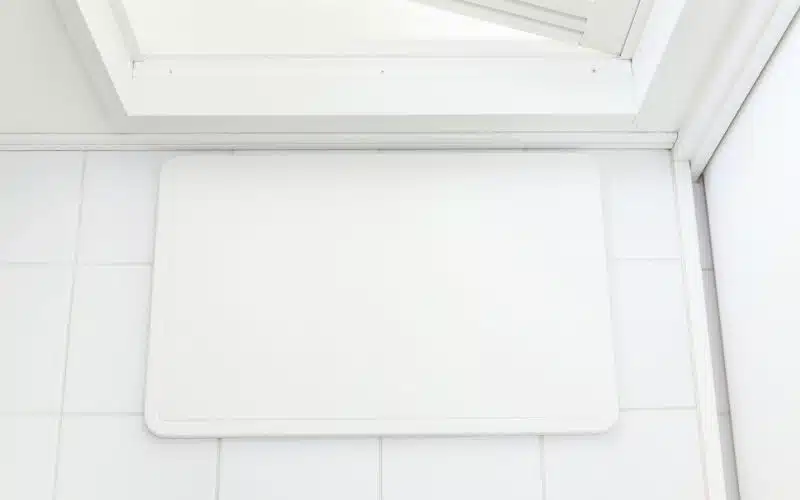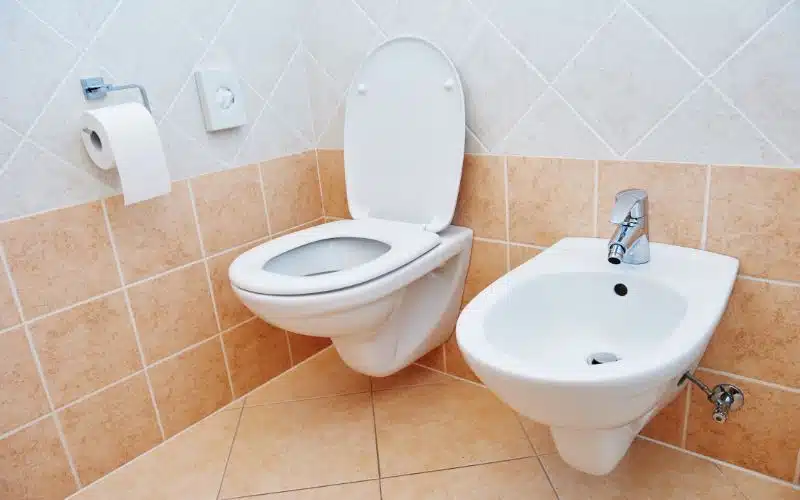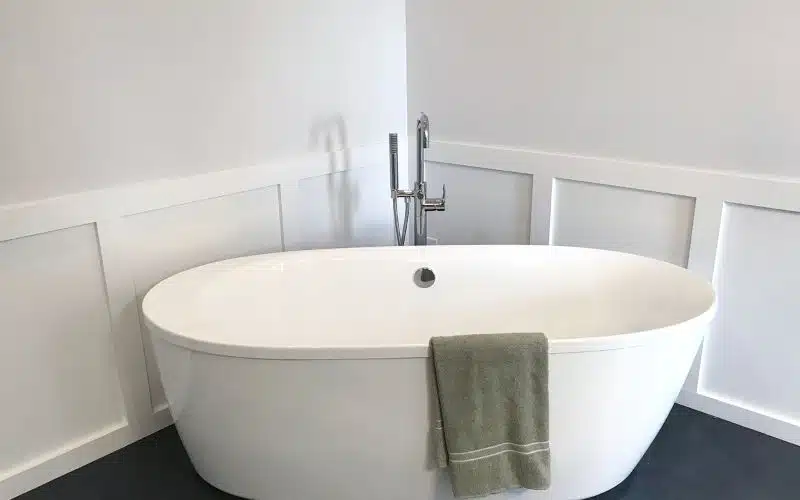Water is an essential and invaluable element that comes from different sources to serve numerous purposes.
In a home, the water goes to every vital part that needs adequate supply. These parts include the bathroom and the kitchen.
Hence, many homeowners often wonder if the bathroom and kitchen water are the same.
The bathroom water is the same as the kitchen water. The reason is that the water in the bathroom and kitchen come from the same source. However, the water passes through the pipes for the bathroom and kitchen respectively to serve different purposes.
Is Bathroom Sink Water Same As Kitchen Sink Water?
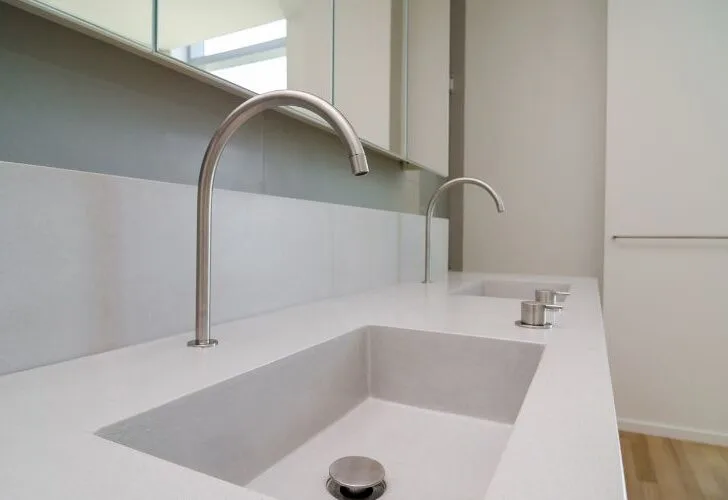
Your bathroom sink water is the same as your kitchen sink water, as they both come from the same source.
Although the water might come from the same source, the uses of the water differ. The bathroom and kitchen usually contain different pipes that enable the passage of water.
Some bathroom pipes may contain toxic contaminants that might mix with the water from the storage tank.
However, this is not usually the case with kitchen water. The water that flows to the kitchen pipes is fresh and directly from the main water line.
So it’s best to take immediate action when you begin to observe a change in the color of your bathroom and kitchen water.
You must test your bathroom and kitchen water to know if the water is the same. Now, how do you carry this out?
Below are some methods you can use to test whether the bathroom and kitchen water are the same.
#1. Turn Off The Mains
Find the main water tap. You can do this by following the connection on the water meter. When you find it, shut off the water from the main tap and try to activate the bathroom and kitchen faucet.
If the faucets fail to generate water, they come from the same source. However, if one of the faucets begins to produce water, the water is not the same.
One might be from the storage tank, while the other might be from the main water line.
#2. Use Home Water Test Kits
You can easily purchase water test kits at any local store or market for $5.00. You can get pH strips indicating color when you dip it into the water.
You must carry out the steps below to accurately determine if the water from the bathroom and kitchen is the same.
#1. Step 1:
Collect two bathroom and kitchen water samples in two beakers or test tubes.
#2. Step 2:
Mark the bathroom water sample as A and the kitchen water sample as B to avoid confusion.
#3. Step 3:
Remove one of the pH strips, dip it into sample A and repeat the same procedure for sample B.
#4. Step 4:
Observe the colors for both samples. If the color of the strips is the same, then the water is the same. However, the water is not the same if the colors are different.
Is It Safe To Drink Bathroom Sink Water?
It’s not safe to drink bathroom sink water no matter how thirsty you are, as it can threaten your health.
Most times, bathroom sink water comes from the storage tank and passes through pipes that might be harboring harmful contaminants.
Hence, bathroom sink water is the only ideal for washing your face, brushing your teeth, and washing your hair and hands.
Sometimes, the bathroom sink water appears dirty and dark, indicating the problem is from the storage tank.
Most homeowners with an indirect water supply system store water in their tanks and fail to wash them. And this leads to the accumulation of dirt and algae at the bottom of the tank.
So, when the water travels through the pipes, it mixes with other harmful contaminants like lead which causes harm.
When you drink the water, oblivious to these facts, you might experience terrible stomach aches. You might also get pneumonia which will land you in the hospital for weeks.
Nonetheless, I’ll highlight other health challenges you might encounter if you drink bathroom sink water.
#1. Diarrhea
Drinking your bathroom sink water can cause serious diarrhea and make you spend hours in the toilet.
Not only does it affect your health, but it also brings your normal activities to a standstill.
Plus, you end up spending a lot on drugs. You might also spend weeks in the hospital if your condition is severe.
#2. Kidney Failure
This condition is crucial and eventually happens when you continue drinking bathroom sink water. Your kidney might begin to fail, and you might begin to encounter difficulty in passing out urine.
#3. Vomiting
This condition also comes as a result of the microorganisms in the water. You might begin to vomit frequently.
In severe cases, you might vomit blood along with the food, rendering your system empty.
The contaminants that enter your bathroom sink water come from old pipes and the storage tank. The table below highlights the contaminants and their effects.
Why Does Bathroom Water Taste Different Than Kitchen Water?
Many homeowners often wonder why the bathroom water tastes different than the kitchen water, even though they come from the same source.
The major reason for the differences in taste is temperature. The bathroom water is usually cold, while the kitchen water is warm. Let me explain vividly!
Generally, the main water chain/line to many homes is underground. This helps to maintain the cool temperature of the water.
So the water travels through pipes to get to different target locations in your home. The water reaches room temperature when it enters the pipes.
Therefore, when the water enters your bathroom sink, you use it immediately for personal purposes.
So, the water flushes out the room temperature and displaces it with cold water, and the process occurs repeatedly.
So when you drink the water, it tastes different and cold, like it’s from a refrigerator. However, this is not the case with kitchen water.
When you turn on the water from the kitchen, you drink it immediately without pouring it into the sink.
Therefore, the flushing and eliminating process doesn’t occur, thereby maintaining the room temperature water.
Plus, your bathroom is closer to your water meter; hence it doesn’t receive enough time to reach room temperature.
Furthermore, the bathroom water undergoes more circulation through different pipes before they reach the bathroom.
So, if your pipes are old and corroding, the water might carry the particles. Thereby making the water taste different from your kitchen water.
To fix this problem, you need to replace the pipes. Purchase high-quality pipes from a trustworthy store and fix them immediately.
It’s advisable not to attempt fixing the pipes without knowing the procedure. Always consult a professional plumber to help you out.
Why Does Bathroom Tap Water Taste Better Than Kitchen?
Bathroom tap water tastes better than kitchen water because it’s colder and doesn’t reach room temperature.
On the other hand, kitchen water always reaches room temperature, replacing cold water.
The reason for this is pretty simple! The kitchen is not close to the meter and usually comes directly from the main water line.
Hence, it doesn’t require many pipes to circulate water properly. That’s why your kitchen tap water is always warm when you pour it into a glass/cup.
It might be slightly hot sometimes, especially when the weather is extremely hot. Notwithstanding, there are ways to make your kitchen tap water taste better.
Below are some ways to improve the taste of your kitchen tap water.
#1. Boiling
This method is the most efficient way of improving your kitchen tap water taste. The kitchen tap water tastes different because it contains traces of magnesium and calcium, making the water hard.
In this case, you must boil the water and allow it to settle. Afterward, filter it and put it in your refrigerator to cool.
#2. Cooling
To make your kitchen tap water taste better, refrigerate it in bottles or a jug. This way, the bad taste will subside, and it will go back to normal.
Summary
Bathroom and kitchen water are undoubtedly the same as they come from the same source.
Regardless, it’s not advisable to drink bathroom water no matter the situation, as you may cause more harm than good.
